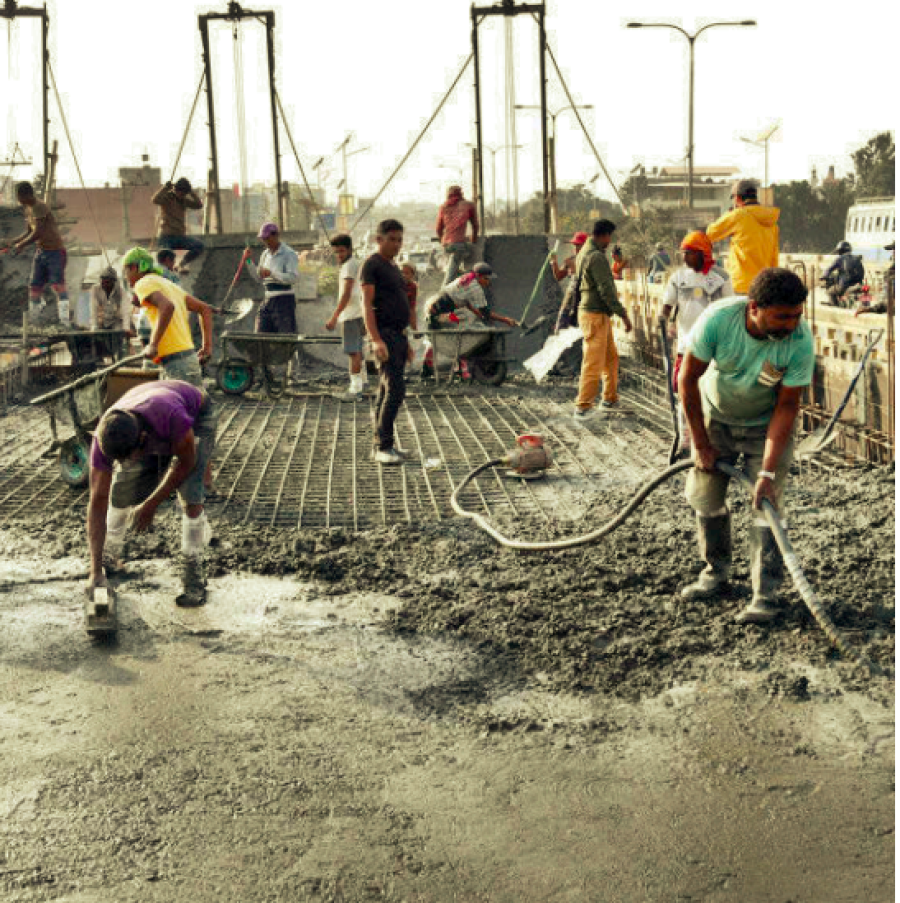National
Sluggish import of equipment and industrial raw materials suggest economy activities continue to suffer amid Covid-19
Economic activities are slow, but moving towards a positive direction, the central bank says.
Prithvi Man Shrestha
While the external sectors of the economy appear to be sound due decline in imports, the internal sector continues to remain subdued due to the Covid-19 pandemic, data on import of industrial raw materials, equipment and construction materials.
Even though there has been improvement in import figures of these items in the first three months of this fiscal year, imports have not reached the level they had reached during the same period last fiscal year.
“Data on imports of industrial supplies and capital goods indicate that economic activities in the country are still moving in slow pace, but are moving in the direction of recovery,” said Gunakar Bhatta, spokesperson for the central bank.
According to the central bank, Rs100 billion worth of industrial raw materials have been imported during the first three months of this fiscal year. During the same period last year, the figure stood at Rs115.2 billion.
This according to the officials and experts is the result of continued slowdown in economic activities in the country, even months after the nearly four-months of nationwide lockdown lifted only on July 22.
Likewise, the import bill of capital goods also slumped to Rs48.4 billion in the first quarter this fiscal from Rs52 billion recorded during the same period last fiscal year.
However, compared to the period of the lockdown, imports have grown gradually. For example, the import bill of industrial supplies increased to Rs 39.5 billion in the third month from Rs35.2 billion in the first month of this fiscal year. When it comes to capital goods, the amount spent on import of such goods soared to Rs18 billion in the third month from Rs14.2 billion in the first month of this fiscal year, according to the central bank.
Even though the government has been reporting a relatively reduced number of daily coronavirus cases in the recent weeks compared to the earlier months, the number of Covid-19 cases have been growing across the country. On Friday, the number of cases increased to 229,3343 with 1,703 new infections.
Health experts have been warning the situation could deteriorate as the northern hemisphere braces for winter. Many countries are currently seeing a second or third wave of coronavirus infections, forcing them to issue stay-at-home orders.
“Amid uncertain situations, we can’t expect the private sector to invest much,” said Bhatta. “In such a situation, public investment and spending should drive the economy. The government should speed up spending in major infrastructure projects”
But, government spending, particularly that of the capital budget has been disappointing. According to the Financial Comptroller General’s Office, which keeps records of the government’s income and expenditure, capital expenditure stood at 8.61 percent of total capital budget as of November 26. But contractors said that the government has not yet created a conducive environment for them to work on project sites.
Construction activities in Nepal usually pick up the pace after the festival season. Contractors said they are struggling to mobilise workers due to the lack of health and safety measures.
Contractors are also worried about the potential shortage of construction materials after a recent decision by the Ministry of Home Affairs to prohibit aggregate mining.
In a recent interview with the Post, Rabi Singh, president of Federation of Contractors’ Association of Nepal, a grouping of contractors, said that even after seven month of lobbying, the government failed to prepare health protocols for the construction sector.
Industrialists say that even though the demand for goods and services has grown slowly in the recent months after the lockdown was lifted, it is not enough to revive the economy, which is expected either to see low or negative growth, according to international agencies.
According to the World Bank’s projection last month, Nepal’s economy could grow by 0.6 percent. this fiscal year.
Satish Kumar More, president of Confederation of Nepalese Industries told the Post that the demand for construction materials such as cement and iron still has remained low, particularly due to the government’s failure to spend its capital budget.
“We plan to meet the finance minister early next week. We will talk about it with him,” he said.
According to him, food-related industries are operating relatively well in recent months but industries that support development activities by producing cement and steel are not operating well.
Economist Raghubir Bista said that economic activities continue to remain sluggish as there is no demand for goods and services as usual.
“The government announced several packages to create employment, but they remain unimplemented,” he said. “Employment helps to create demands and revive the economy which has not happened.”
Through the budget, the government has announced the creation of over 700,000 new jobs. “Instead of implementing the budget, political squabbling in the ruling party appears to have disoriented the government,” said Bista, an associate professor of economics at Tribhuvan University.




 9.83°C Kathmandu
9.83°C Kathmandu














